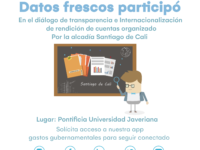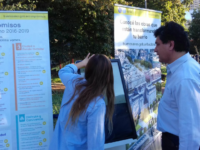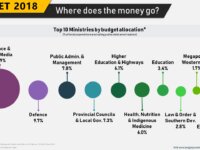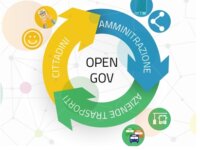Education in Open Government is a project whose main objective is to foster social and civic competences for the exercise of one's democratic citizenship in children and young people. It involves three phases:
1) Teachers' training via a massive online open course (MOOC).
2) Implementation of educational projects in schools: for this purpose, 3 guides of Education in Open Government have been published: Primary Education, Secondary Education and High School.
3) Evaluation of the experiences.
Innovation Tag Opengov: implementation
East Africa has an urgent need for innovative accountability mechanisms, as many public services are inefficient and corrupt. SEMA helps to improve the quality of public service delivery, by gathering real-time citizen feedback and presenting this data in digestible formats. We use low-tech tools, such as custom-made hardware devices and interactive voice response technology, that help citizens from all backgrounds to have a voice in evaluating their public services.
The Colombian Public Innovation Team ran a trial aimed to improve the quality and quantity of food served in the Colombian government’s school meals programme (PAE). It combined SMS messages to encourage parental engagement in the programme and lighter audits by a third party (local university students). Behavioural insights were applied to inform message design. The project included a learning phase to test and adapt elements of the intervention and an experimental evaluation (RCT) in the…
Our innovation is a platform that takes data from different open data government sources, and proposes a way to use analysis, visualization, models, predictions for citizens, thereby linking data literacy processes with innovation.
BA Obras is a collaborative initiative to open information on public works in the City of Buenos Aires, seeking to increase transparency in the management of public resources. It consists on a portal through which all the residents of the City can track the works in real time; so they can see what works are being done in their neighborhoods, know the dates of start and end of them, and the investment they require, while they can monitor progress.
‘Budget Promises: Beyond Parliament’ is Sri Lanka’s pioneering budget monitoring platform, created to answer two basic questions about the government’s annual budget – 1) is the government doing what they are saying? and 2) is the government saying what they are doing? Since its launch, the platform has been a primary source for citizens, media, and researchers to track progress on budget promises.
The Open Data Policy of the Federal Executive Branch was established by the Decree N. 8.777/2016. Besides establishing the possibility of requesting public databases, the policy sets up the obligation for each body to draw up an Open Data Plan (PDA), which systematizes the planning for the opening of public data. The CGU monitors (through www.paineis.cgu.gov.br/dadosabertos) around 230 federal agencies covered by the decree, establishing regular and customized contact with public managers.
Transport Infrastructure Ireland introduced a new and innovative approach to the management of our eFlow Tolling Operations Contract on the M50 Motorway by introducing a collaborative relationship-based governance framework with our service provider.
We expect this innovation to deliver better customer services, improved toll revenues and reduced operating costs, which will result in more available funding for investment in our transport infrastructure and services.
Sardinia Region involved all the mobility stakeholders in participating in the “federated network of collective transport open data” and all the data concerning scheduled services were published: buses, trains, ferries, airplanes. Various info-mobility services were developed by ICT enterprises. A web application was developed to allow users to notify transport inefficiencies to agencies and public administration, which are now interconnected with users in order to improve public service…
Budget Monitor is a ICT tool of SAOG that promotes transparency,accountability,efficiency of public administration through increased citizen scrutiny. BM establishes two way communication with taxpayers:
1.provides sophisticated budgetary information by easy-to-interpret visualizations and dynamic graphs for free and
2.enables citizens to get involved in audit process by informing SAOG about deficiencies in public spending,providing recommendations and contribute to improved public service…






